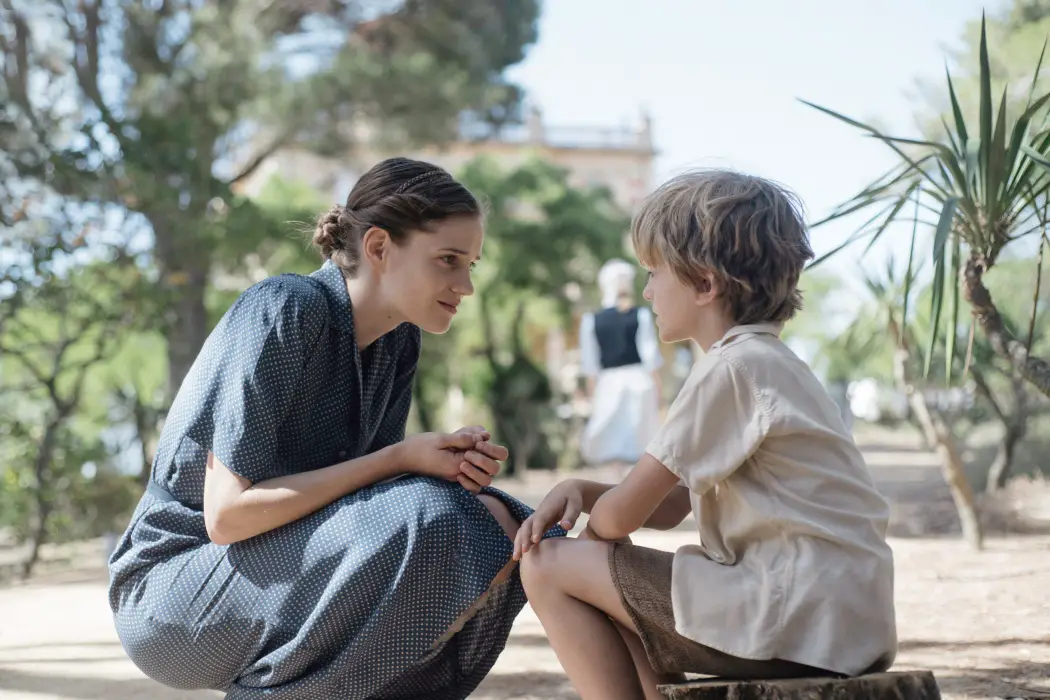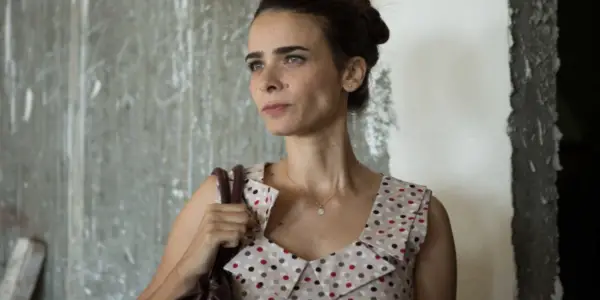UK Jewish Film Festival 2018 Part One: Women Lead The Way

Becky spends her days working in TV and she spends…
The 2018 UK Jewish Film Festival (8th to 22nd November 2018) features more films directed by women than ever in the festivals history. Taking inspiration from the record number of female directed and female-led films at London Film Festival this year, 38% of the films at the festival are directed by women.
The festival itself is in it’s 22nd year and consists of a wide variety of films from the US, Spain, Russia, Argentina, Israel and many, many more. We’ve collated a few of the highlights screening, and in some cases premiering, at the festival. This dispatch focuses on the highlights from the festivals female directors, highlighting the breadth and talent of women filmmakers in Jewish communities across the world.
In terms of female filmmakers, other films which are certainly worth mentioning in addition to the ones below are Budapest Noir (Eva Gardos), Virgins (Keren Ben Rafael) and Unsettling (Iris Zaki).
Working Woman (Michal Aviad)

Opening the 22nd UK Jewish Film Festival this year is Michal Aviad’s quietly foreboding drama Working Woman – the story of Orna, a young woman on her way to a successful real estate career in Tel Aviv. Amongst her daily life with her husband and three young children, Orna (Liron Ben Shlush) embarks on a new career to try and ease the financial burdens on her family. Taking to the real estate business like a fish to water, Orna works hard and finds herself more than capable. The hours are a small issue with her family, but otherwise her new job seems too good to be true. Slowly, Orna’s boss Benny (Menashe Noy) begins to show her more attention than she is comfortable with and Orna has to find a way to manage her working life and Benny’s advances too.
Naturally, Working Woman will be neatly categorized as a film of the #MeToo movement, which is no bad thing but that is not all that the film is. Aviad’s film explores the dynamics of power and control within working relationships and the challenges that women face when they attempt to have it all. Starting with unsubtle comments about Orna’s hairstyle and clothes (“you’d look better with your hair down”), Benny’s obsession with Orna grows into unwanted advances which culminates in a distressing scene of sexual assault. From the beginning of their working relationship, there is no doubt that this is what is going to happen – Benny is a powerful figure not only in his business but also in the community and he is someone who is not used to getting his way at every turn.
Orna is emotionally alone throughout the film, her husband Ofer (though they seem to have a healthy and loving marriage) blames Orna for the situation – unable to see who is really at fault. Orna’s mother, who she is close to, brushes incidents off as accidents rather than showing concern for Orna’s emotional breakdown after Paris. All of this leads Orna to be lost in complete isolation – the subtle building of this tenison between Orna and everyone else in her life assist us with empathising fully with her situation.
It’s a powerful film and one that perfectly encapsulates the way in which powerful men feel entitled to take what they want, at the expense of the dreams and goals of women. Working Woman displays all this with great sensitivity, and more.
93Queen (Paula Eiselt)

In the Hasidic community of Brooklyn, New York, there exists a volunteer Ambulance team – the Hatzalah. Created as a response to the long waiting times for NY ambulances, the Hatzalah have a team of trained volunteers, a fleet of ambulances and the manpower to be the first responders to those in the Jewish community needing medical attention. Manpower is the key word here: the Hatzalah are a male only responsive unit – no women allowed.
To counter this seemingly obvious issue, the Ezras Nashim were created by a group of volunteer women in the community – an entire medical response unit made up of women, trained to assist other women in emergencies. Facing backlash from inside the Hasidic communities (conservative thinkers believe that a woman’s place is in the home and not behind the wheel of a car for starters) and from the outside secular world (many people believe Hasidic women are inherently oppressed regardless), the Ezras Nashim have an uphill battle before they’ve even began.
On the surface 93Queen is about Ezras Nashim and the volunteer service, but at it’s heart the film is centered around one woman and her tireless efforts to improve the lives of others around her in her community whilst being faced with the adversity every step of the way. 93Queen wouldn’t exist without the formidable Ruchie Freier. Even using the word formidable seems like an understatement – Ruchie Freier is a one woman whirlwind, a force of nature which is also purposeful, methodical and completely unstoppable.
The documentary takes enough time to get to know it’s subjects, whilst also honing in on the action – scenes where Ezras Nashim get their first call-out are particularly special. 93Queen offers a window into a closed off community and a chance to be inspired by the work that these women are doing to make the world a better place for their neighbours, friends and the wider world.
The Light of Hope (Silvia Quer)

Women’s stories are so often shut out of the history books and the story of Elisabeth Eidenbenz is no exception to this rule. If you haven’t heard of her, you certainly aren’t the only one – despite recusing over 600 mothers and babies from concentration camps in Southern France during the Second World War, Eidenbenz has only a short Wikipedia entry to cover her astonishing acts of bravery. So it is fortunate that director Silvia Quer has chosen to depict Elisabeth’s legacy on the big screen in the Spanish drama – The Light of Hope.
Set against the backdrop of recently civil war-torn Spain and on the very cusp of WW2, Elisabeth (Noemi Schmidt) risks her life and freedom to give safe refuge to pregnant mothers fleeing Spain and the rest of Europe. The Light of Hope begins as Elisabeth struggles to keep her maternity home open to the vulnerable women – her sanctuary is under threat from the local authorities, who are in turn under command from the Nazis.
The story is partly told through the eyes of Pat, a young boy who was bought to Elisabeth’s maternity home (‘Maternitat de’Elna’) with his mother a few years previously. Pat’s voiceover guides us through certain parts of the story, yet this tapers off when the narrative pans away from the relatively carefree children who know little about the world beyond the gates of the ‘maternitat’. This device is clever as it posits the naivety and rightful innocence of childhood right next to the horrendous nature of the internment camps and the horrors of the Nazis.
Though the film accurately depicts the struggles of refugees in WW2, The Light of Hope is a story also about two women (Elisabeth and refugee Victoria) fighting a war bigger than either of them – each of them believing their way is the right way. Elisabeth is committed to the maternity home and believes that helping the women that she can is the right way to fight back. Victoria, on the other hand, instigates a plot to assassinate the Governor, believing that if she fights violence with violence, she can put an end to the concentration camp at Rivesaltes. Their disagreements on how to react to the terror on their doorstep culminates in an argument where Victoria’s gun becomes a metaphor for her approach and the whistle becomes a metaphor for Elisabeth’s. Whilst it’s clear that they are both stuck in an awful situation – one which neither of them know how to handle – both gun and whistle have served their purpose by the end. Perhaps it does not matter how we resist, just that we resist.
The Light of Hope is a devastating story that needs to be told, particularly because it closes with such a poignant message about how we treat one another today. In the words of Elisabeth, all babies cry the same.
The 22nd UK International Jewish Film Festival takes place between 8th-22nd November 2018 at cinemas across London, Manchester, Leeds and Glasgow. Find more information here.
Does content like this matter to you?
Become a Member and support film journalism. Unlock access to all of Film Inquiry`s great articles. Join a community of like-minded readers who are passionate about cinema - get access to our private members Network, give back to independent filmmakers, and more.
Becky spends her days working in TV and she spends every other minute writing about cinema, TV & feminism. Based in London, she also likes drinking gin, re-watching 'The X Files' and writing about on-screen representation and all manner of things over at femphile.com













